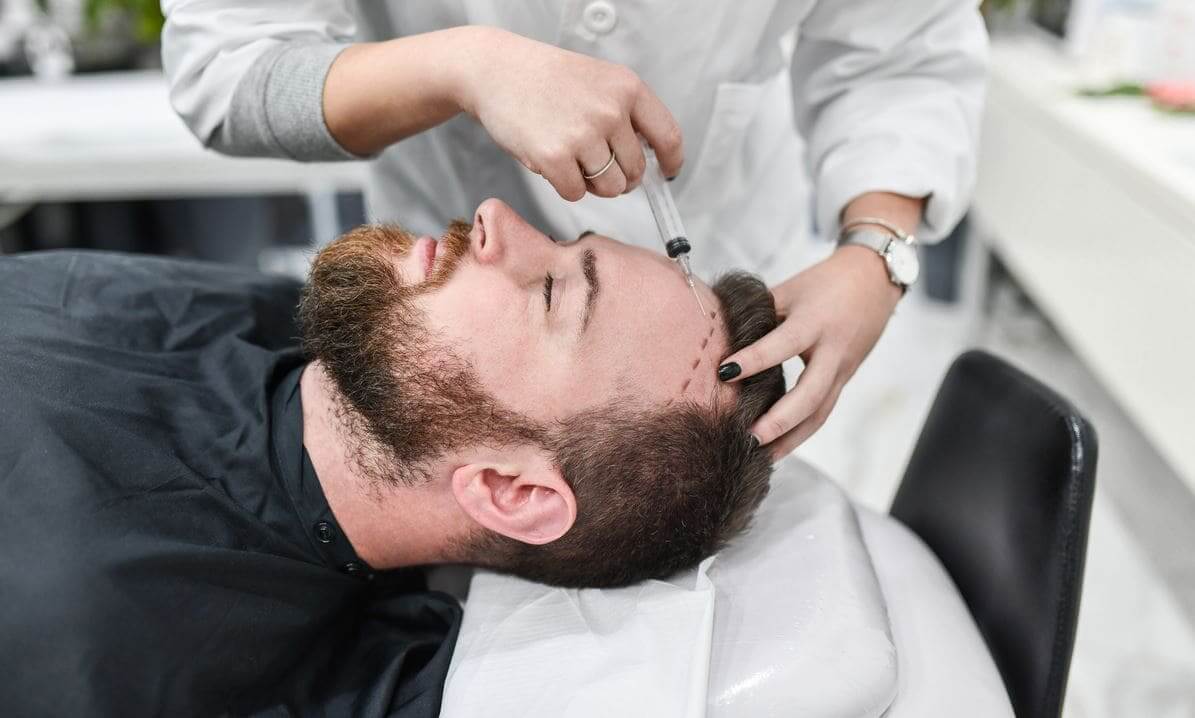1. Understanding Hair Transplantation
Before diving into post-op care, it’s crucial to understand the basics of a hair transplant. A hair transplant involves moving healthy hair follicles from one part of the body (usually the back of the scalp) to areas experiencing hair thinning or baldness. Techniques such as FUE (Follicular Unit Extraction) are minimally invasive and have high success rates.
The procedure creates small wounds where hair follicles are implanted. These grafts are delicate and need proper care to survive, attach, and grow into healthy, permanent hair.
2. Immediate Post-Operative Care
Once your hair transplant procedure is complete, the recovery process begins. The first 24-72 hours are critical in ensuring the grafts stay intact.
2.1 Managing Pain and Discomfort
Mild pain, swelling, and tenderness around the donor and recipient areas are normal. Your doctor will prescribe medications to alleviate discomfort.
- Take prescribed painkillers and antibiotics as directed.
- Use an ice pack on your forehead (not on the grafts) to reduce swelling.
2.2 Protecting the Grafts
The transplanted hair grafts are fragile in the initial days. To prevent damage:
- Avoid touching, scratching, or rubbing the treated area.
- Wear a loose, clean hat if you need to go outside.
- Avoid direct sunlight and dusty environments.
3. First Week After Surgery
The first week after surgery is crucial for graft survival. Follow these guidelines for the best outcomes.
3.1 Cleaning Your Scalp
Proper cleaning prevents infection and promotes healing:
- Use the saline solution or specialized shampoo recommended by your doctor.
- Gently pat the scalp while washing—do not scrub.
- Let the scalp air dry or gently pat with a clean towel.
3.2 Sleeping Positions for Comfort
How you sleep affects graft survival and swelling reduction:
- Sleep with your head elevated at a 45-degree angle for the first 3-5 days.
- Use multiple pillows or a recliner chair for added comfort.
- Avoid sleeping on your stomach or sides to prevent graft dislodgement.
4. What to Avoid During Recovery
Certain habits and actions can harm your grafts or delay recovery. Here’s what you should steer clear of:
- Smoking and Alcohol: These hinder healing and graft survival. Avoid them for at least 2 weeks post-surgery.
- Heavy Exercise: Avoid intense workouts or heavy lifting for 10-14 days. Sweating can irritate the scalp and dislodge grafts.
- Direct Sunlight: Protect your scalp from UV exposure for at least a month.
5. Tips for Long-Term Success
After the initial recovery phase, transitioning to long-term care ensures sustained results.
5.1 Proper Nutrition
Hair health begins from within. Include foods rich in:
- Proteins: Eggs, lean meats, fish, and beans.
- Vitamins: Spinach, carrots, and citrus fruits.
- Iron and Zinc: Nuts, seeds, and whole grains.
5.2 Avoid Stress
Stress is a common culprit behind hair loss. Practice relaxation techniques such as meditation, yoga, or breathing exercises.
5.3 Regular Follow-Up Appointments
Visit your surgeon regularly to monitor progress. They can identify any issues early and adjust your care plan accordingly.
6. Frequently Asked Questions
1. When will I see results after a hair transplant?
It typically takes 3-4 months to see initial growth, with full results appearing after 12 months.
2. Can I dye my hair after a transplant?
Avoid coloring your hair for at least 4-6 weeks to prevent irritation.
3. Is shedding normal after a hair transplant?
Yes, transplanted hairs often shed within the first month. This is a natural process known as “shock loss.”
4. What shampoos should I use?
Use mild, sulfate-free shampoos as advised by your doctor to keep the scalp healthy.
5. Can I undergo a second hair transplant?
Yes, if needed, a second procedure can be done after proper evaluation by your surgeon.
Conclusion
Caring for your scalp and grafts after a hair transplant is just as important as the procedure itself. Following the advice from experts at Profue Clinic can ensure optimal healing and long-lasting results. Take the time to nurture your new hair—it’s an investment in your confidence and well-being.
